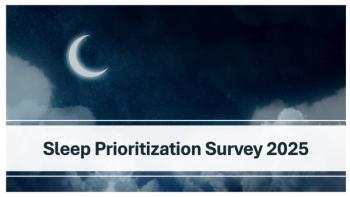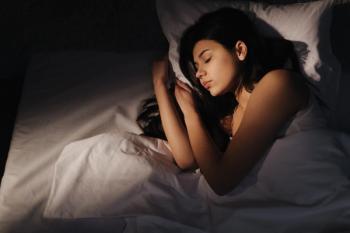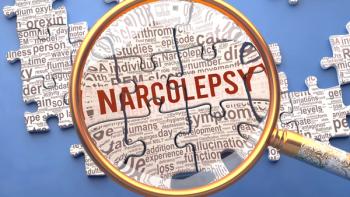
Wristband Data Show Sleep Problems Ubiquitous Among People with Psychiatric Disorders
The study leveraged the power of wristband accelerometry to reveal links between sleep and psychiatry.
A large-scale study that leveraged wrist-worn health trackers suggests sleep problems are the norm, not the exception, among people with psychiatric disorders.
The report,
Corresponding author Shreejoy Tripathy, PhD, of the University of Toronto, and colleagues, noted that links between sleep and psychiatry are well-documented. However, studies into the topic are generally subject to significant limitations. Measures of sleep quality are typically self-reported and therefore highly subjective, and studies using objective measures like polysomnography are necessarily limited in size.
In order to achieve a higher scale, Tripathy and colleagues decided to use objective sleep data gathered by wrist-based accelerometry, and then cross-reference that sleep data with diagnostic records to see whether links could be found between sleep and the likelihood of a mental health disorder diagnosis at any point in life.
The authors used the United Kingdom’s
After exclusions, including for those whose wristband use was inconsistent or whose week coincided with daylight savings time shifts, the authors based their analysis on 89,205 participants. Patients were scored based on 10 sleep measures, and then those data were compared with diagnoses for 4 psychiatric disorders: major depressive disorder, anxiety, bipolar/mania, and schizophrenia.
The investigators found that sleep problems were ubiquitous among patients with mental health diagnoses, and sleep quality tended to be more closely associated with psychiatric disorders than sleep duration.
Michael Wainberg, PhD, the study’s first author, told Managed Healthcare Executive that the consistency of the findings was a surprise. The data showed that each mental health diagnosis was associated with an average of 8.5 of the 10 sleep measures.
“We observed sleep pattern changes for all four categories of diagnoses we looked at… and for nearly every sleep parameter we looked at (bedtime, wake-up time, sleep duration, number of nighttime awakenings, and so on),” he said. However, Wainberg added that the data also had other surprises. For instance, while sleep problems were consistently correlated with psychiatric disorders, the effect sizes of the associations were generally modest.
While the study confirms links between sleep problems and the likelihood of a mental health disorder, it also shows the benefits—and limitations—of accelerometry in tracking sleep.
“Wrist accelerometers only measure wrist movement, and wrist movement is an imperfect proxy for sleep,” he said. “In particular, accelerometers tend to have trouble distinguishing sleep from the period immediately before falling asleep, when the person is already fairly motionless.”
The devices can also have trouble noticing when a person wakes up briefly but does not move his or her wrist.
“That said, accelerometry is generally considered fairly accurate for sleep measurement, and it’s much more versatile than polysomnography, which requires attaching multiple electrodes to your body and often spending the night in a sleep clinic,” he said.
Given that versatility, Tripathy told Managed Healthcare Executive that he thinks such devices can play an important role in the way physicians and patients track and improve sleep.
“But I think this is likely some way off into the future, as both physicians and patients learn about the strengths and limitations of these devices, given their real-world usage in the home,” he said.
Tripathy noted that the wearable he uses, called a Whoop, “also offers a handy tool for exporting summaries of my sleep data to my clinician… though I’m not quite sure they’d know what to do with this information!”
Tripathy said the study shows sleep problems should be part of the patient/physician conversation regardless of which psychiatric conditions a patient presents with, though he said the accuracy of sleep trackers would need to be studied more closely in a well-designed clinical trial.
Newsletter
Get the latest industry news, event updates, and more from Managed healthcare Executive.























